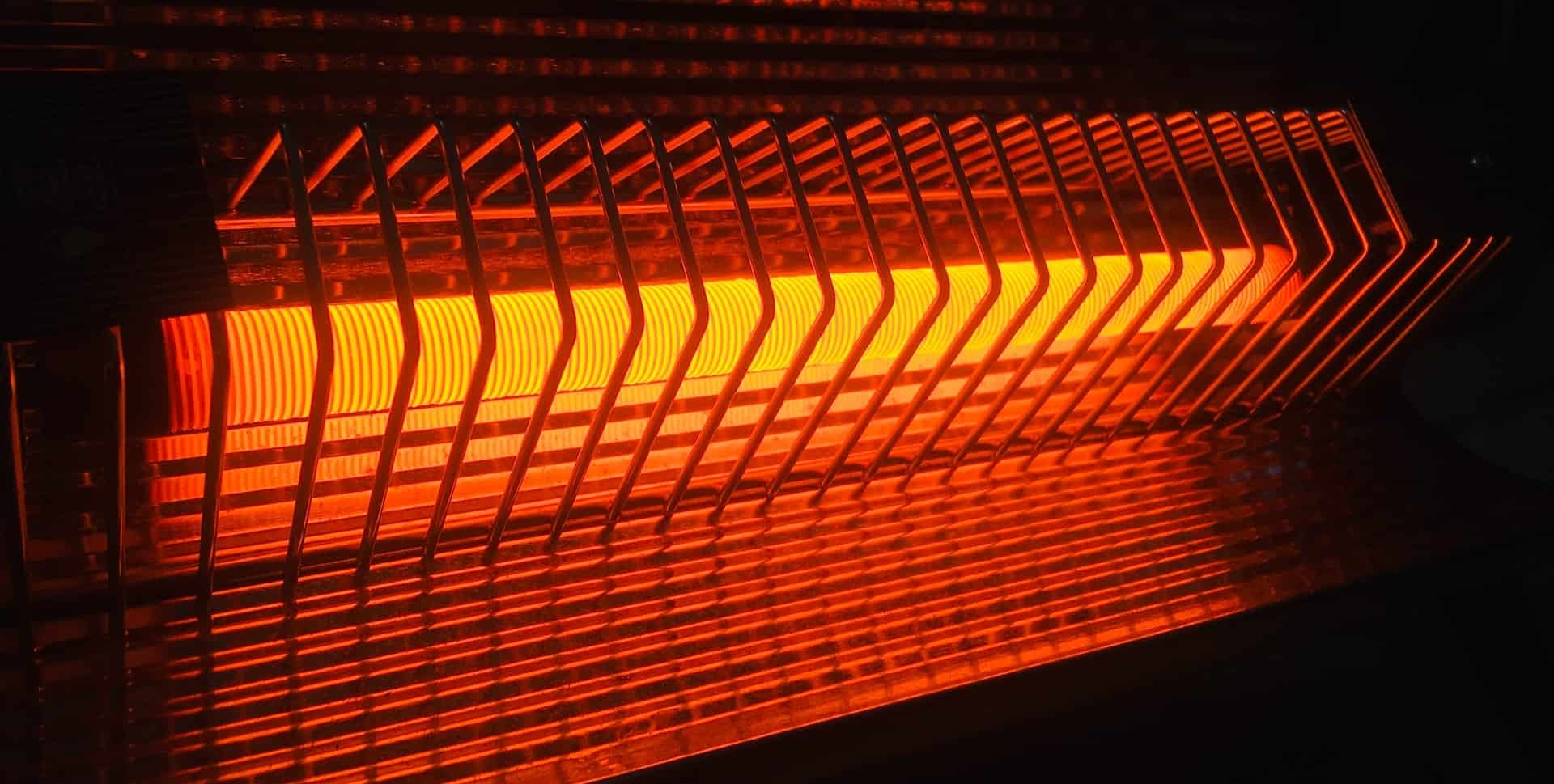Camping is a joy. But as more people rediscover the outdoors, camping is becoming crowded. Thus, those who crave a less populated outdoor experience are venturing out during cooler times of the year.
However, staying warm in a tent can become a challenge. Yes, people climb Everest and live in tiny tents. But the average camper is not a seasoned mountaineer. Can you put a heater in a tent?
Some heaters are considered safe for tents, provided you follow safety guidelines. Heaters in tents should not be on while occupants are asleep, and proper ventilation is necessary. Tent heaters typically have to be positioned in specific locations in a tent to be safe.
Interviewing chemical engineers and other season campers about heaters in tents provoked expansive responses.
One person said, “You can put any heater in a tent so long as you don’t turn it on.” Another person replied, “Nope, nope, nope.” Yet heaters have been a game-changer for many campers with disabilities, chronic conditions, or over a certain age. But yes, safety is paramount when heating a tent.
So are tent heaters safe? Read on to find out!
Which Heaters Are Safe To Use In A Tent?
Some tent heaters are deemed safe to use in a tent. However, the heater must be marked “indoor-safe” to be considered for a tent. All outdoor heaters are dangerous for tent use.
Other features to look for:
- Tip-over shut off
- Low-oxygen sensor shut off or alarm
However, let me be clear: you can’t buy a heater that is safe to use in a tent while you sleep. They don’t exist. But running the heater before you get some shut-eye can be surprisingly effective if you own a quality, winterized tent.
If you happen to be one of the many campers that can’t hold it through the night (I hear you), significant amounts of heat will be lost as you enter and exit the tent.
However, running the heater a few minutes before you return to slumber works a treat.
Just remember to use a heater in a tent safely:
- Be awake
- Use a carbon monoxide detector
- Ventilate while the heater is in use per instructions
- Place the heater in a safe spot in the tent
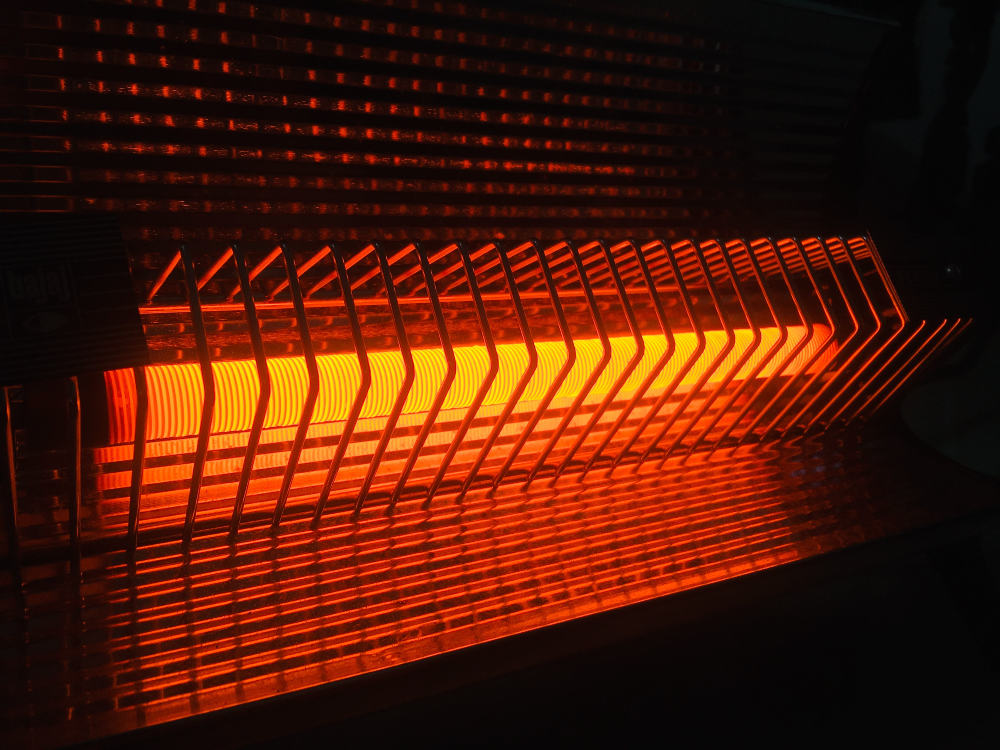
1. Electric Heaters For Tents
Electric heaters are typically a safe option, provided you can access electricity. Many tents these days even come with an E-port to allow a cord to be run into the tent without having to unzip part of the tent door.
Pros To Using An Electric Heater In A Tent:
- Requires minimal oxygen
- Does not use combustible fuel in your tent
- No risk of carbon monoxide
Cons To Using An Electric Heater In A Tent:
- Must have access to electricity
- Can get too hot and start a fire
- Must use a heavy-duty extension cord to avoid fire risk
- Can’t use if raining (moisture could ride down the cord)
The heater needs to be small enough for your tent. Too big, and it is a fire risk.
Many heaters require a minimum of two feet of clearance. You also need to think carefully about the type of heater you buy, even if it is marked safe for indoor use.
Fan Blown Heaters In Tents
Fan-blown heaters are adored because they circulate heat. Unfortunately, others can leave you huddling near the device, which is awkward and potentially dangerous.
However, they need space behind them to suck the air in and will require plenty of clearance to ensure nothing flammable can get caught in the element.
These heaters can get extremely hot, so look for ones where the front grid remains relatively cool. Also, auto-shut-off features are a must.
Space Heaters In Tents
Space heaters can be a good option as they are often small and typically quieter than your average fan heater. Some have a small fan that circulates the heat.
However, others do not, and they will typically only warm part of the tent or leave cold spots.
Infrared Heaters In Tents
Infrared heaters don’t use oxygen (they can work in a vacuum) and don’t get as hot as most other electric heaters. However, looking into the light can be very bad for your eyes.
Thus, if you have children, consider if your kid will have difficulty following the “don’t look” rule.
Dyson Pure Hot Cool Fans In Tents
Dyson Pure Hot Cool Fans need at least three feet of clearance. However, these heaters remain relatively cool compared to the competition, making them a nice choice. Yet, they still manage to warm up the tent.
2. Catalytic heater
Catalytic heaters don’t use a flame to produce heat but use a chemical reaction. These heaters often have a lower risk of monoxide poisoning.
However, they do require oxygen, so you must use them with proper ventilation. Also, they typically require a minimum of 3 feet of clearance. Thus, these might not be an option for snug tents.
3. Gas Heaters
Gas heaters are an incredibly popular since they require no electricity or annoying heavy-duty cords. They are considered safe so long as they are suitable for indoor heating (outdoor-only models can kill you).
However, they require clearance, ventilation, and a carbon monoxide detector.
That said, when interviewing chemical engineers on this subject, responses ranged from “Are you insane?” to incredulous laughter.
Thus, people who work with flammable and explosive substances for a living seem less inclined to sleep with them in their tent, even when the device is off. Take that however you will.
Pros To Using A Gas Heater In A Tent
- Doesn’t need an electrical hookup
- Can take anywhere
- Fuel is often affordable
- Quickly heats a tent, so doesn’t have to be on long
- Works in the rain (provided the inside of the tent is dry)
Cons To Using An Electric Heater In A Tent
- A carbon monoxide risk
- An oxygen depletion risk
- Flammable fuel is inside your tent
- Flammable fuel must be lit to create warm in your tent
- Gas heaters could tip, and their small flame can light other things on fire
Propane Heaters In Tents
There are two reasons propane heaters are more popular than butane:
- Propane is easier to source in most cases
- Propane is cheaper in most cases
Butane Heaters In Tents
Butane has some advantages over propane:
- Lighter to carry if you are backpacking
- Burns cleaner so produces less carbon monoxide
On the last point, while butane produces less carbon monoxide, it still produces some. Thus, you still need to monitor the levels of carbon monoxide.
4. Mr. Buddy Heater
Mr. Buddy heaters are swiftly becoming the most popular tent heaters. The indoor-safe heaters come in various sizes, including Mr. Heater Big Buddy and Mr. Heater Little Buddy.
These are radiant heat, so safer than your average gas heater, as they were designed for camping. They also have fantastic safety features, such as an automatic low oxygen shut-off and a tip-over switch.
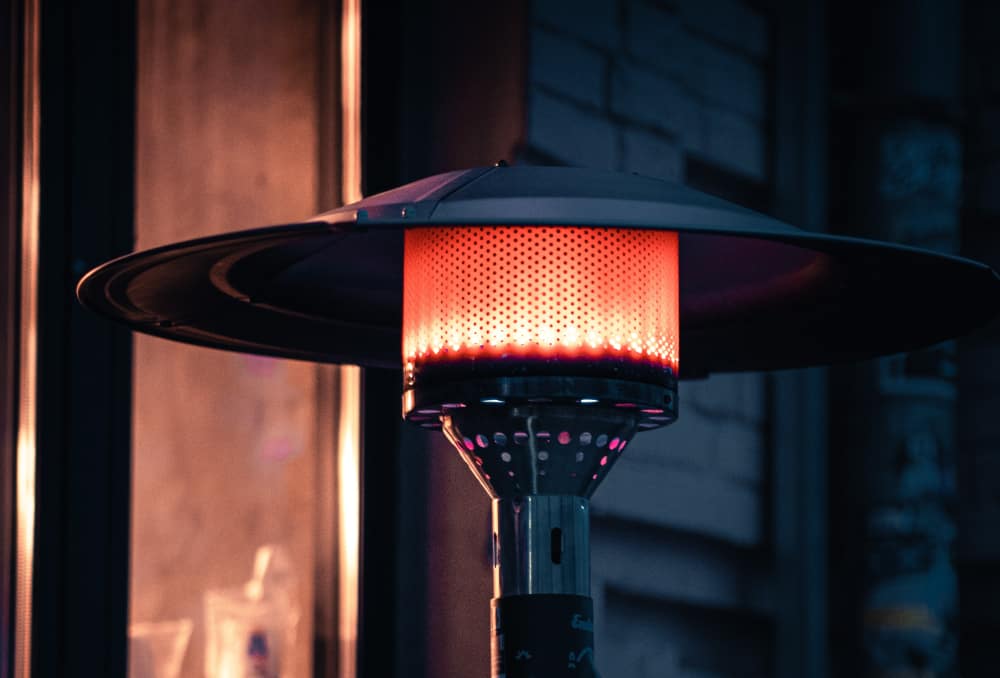
Which Heaters Are NOT Safe To Use In A Tent?
Some heaters have an extremely high risk of fire, monoxide poisoning, or both. An easy way to tell a heater is bad is if it is for “outdoor use only.” That right there is a sign to keep it away from your tent. But here are some examples of heaters to avoid using in or near your tent.
1. Halogen Heaters
Halogen heaters are generally not a good idea. Of course, there are possible exceptions, especially if using them in giant tents. But more often than not, they become far too hot to operate safely in a tent.
2. Wood Burning Stove
Wood-burning stoves are not generally recommended in a tent UNLESS you have a stove jack. Smoke inhalation is unhealthy if your tent doesn’t have a chimney.
There may be one model on the market that might work, requiring the tent to be of a specific size, material, and other very particular specifications. But why put yourself through that kind of research and stress when there are better options?
3. Coal Or Charcoal Heaters
Heaters that run off coal or charcoal are at high risk for monoxide poisoning. You may know somebody who brought their small charcoal grill into their tent and lived to tell the tale. But just because someone managed to survive a poor life choice doesn’t make it a good idea.
4. Patio And Deck Heaters
Patio and deck heaters are made for the outdoors. However, being inside a tent is an indoor environment and does not play well with outdoor heating devices.
5. Oil-Filled Heaters
Oil-filled heaters are only safe in perfect conditions, such as a perfectly flat surface. But camping is unpredictable and varied; that’s part of its fun. Thus, oil-filled heaters are too risky.
6. Kerosene Heaters
Kerosene heaters are a terrible idea. It is a dirty fuel that can clog, leaving you with a messy situation inside your tent. Besides, this stuff stinks and will make the tent and everything in it smell awful.
7. Camping Stove
Camping stoves have flames and fire inside a tent is a bad idea. Do mountaineers do it? Yes, they often do. But their entire sport involves high-risk activities, including avalanches, frost bite, and clinging to icy rocks by the tip of a tiny metal ax. For your average camper, this is a bad idea, especially if there are kids.
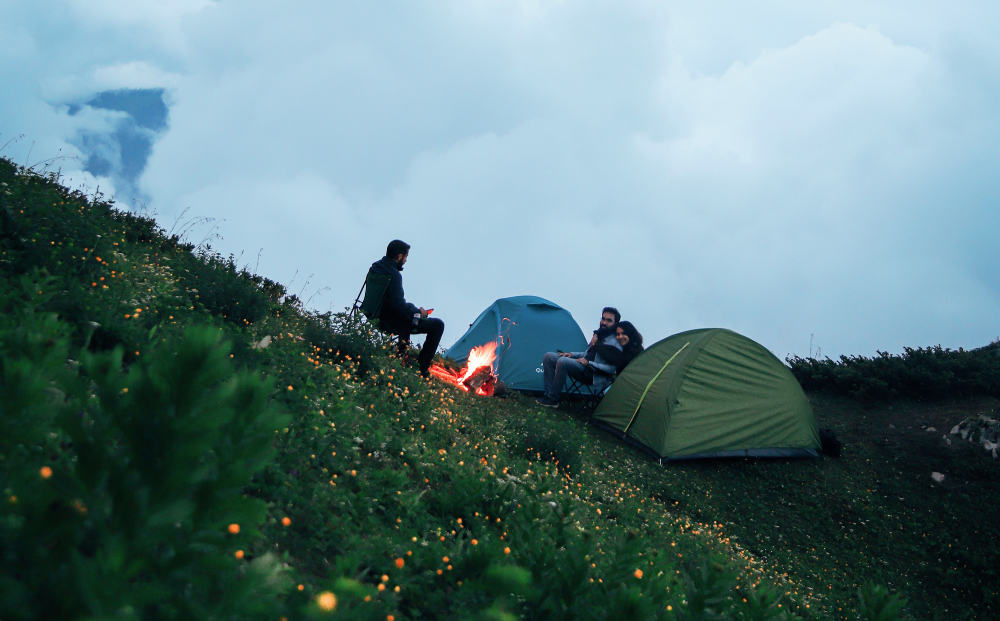
Why Are Some Heaters Deadly To Use When Camping?
Heaters can and do kill campers. The most common method is carbon monoxide poisoning. Tent fires can happen, but thankfully, campers usually manage to get out before their tent turns into pure carbon remains.
But even if you live, losing your camping gear is expensive. Also, fires can occur not just from an open flame but also from the device becoming too hot for a nearby fabric.
Heaters without an oxygen cut-off switch will leave you with none if you fall asleep. Outdoor heaters are meant to heat areas without walls, so they have expansive power.
Thus, these heaters suck oxygen and spew carbon monoxide at rates that a small tent can’t safely handle, even with ventilation.
Which Heater Do We Recommend?
Choosing a tent heater is a personal decision as even heaters designed for indoor use are not tested for tents. Most indoor-safe heaters assume you’re using them in a cabin, at the very least.
But here are a few heaters that campers are using with positive success.
1. Mr. Buddy Heaters
If you need a portable, electricity-free heater, then Mr. Buddy is the way to go. They have many sizes, from the Little Buddy to the bigger Portable Buddy.
Their auto shut-off will activate if it is tipped over, there is low oxygen, or if the pilot light goes out. They have temperature settings and heat an area quickly.
2. Honeywell 360 Degree Surround Fan
The Honeywell 360 Degree Surround Fan isn’t very big, making it ideal for smaller spaces, such as tents. The electric heater has safety features necessary for camping: overheat protection and a tip-over switch.
It also has a timer, which is an excellent backup if you are afraid, you might accidentally fall asleep while it is running. The thermostat also helps you monitor the situation.
Another attractive feature of the Honeywell is that it stays cool to the touch. This is essential when camping around children.
3. METKIIO Space Heater
The METKIIO Space Heater is a petite choice for retro lovers and those that use snug tents. The ceramic heater has overheating protection and a tip-over shut-off.
METKIIO also has a low noise level, which is a great feature when in a small space. Due to its smaller size, it uses less electricity than your standard space heater. Thus, it can run off a portable power bank.
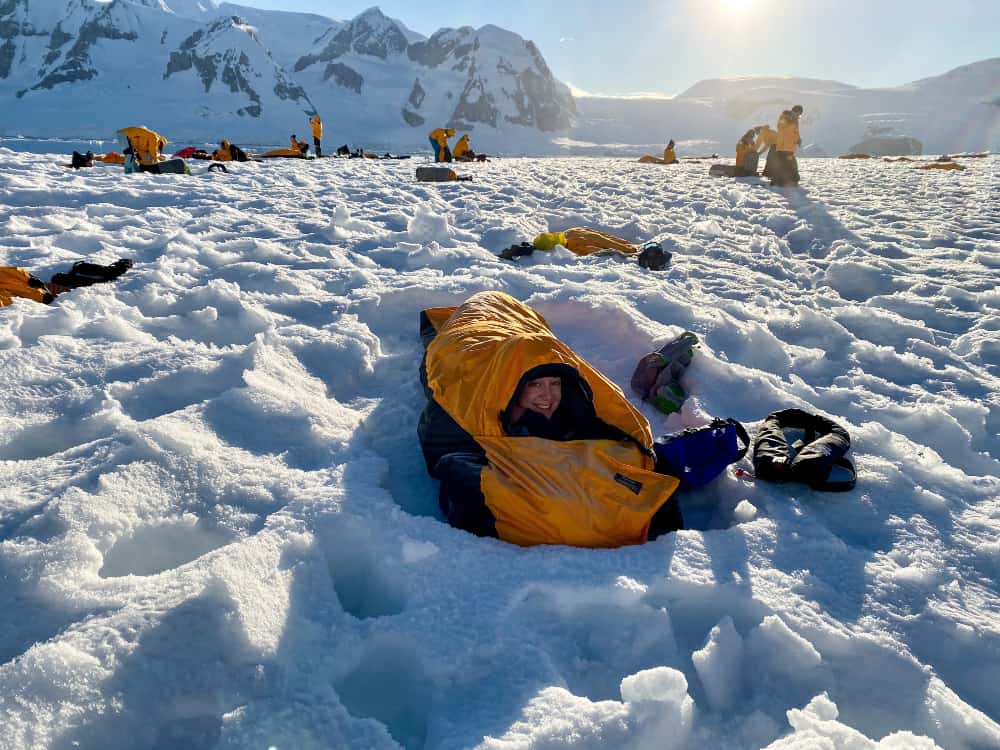
What Is A Safe Alternative To Keep Warm In Your Tent?
I have used heaters in tents when camping with friends. But for my family, I prefer to use safer alternatives to keep us warm. We have kids and pets, and that’s enough excitement for me without tossing a heater into the mix. Thus, in cooler months, our family uses:
- Thicker tent
- Hot water bottles
- Duck down sleeping bags
- Wool beanie
- Layers
- Camping cot with a high-quality sleeping pad
We haven’t tried heated clothing yet, but some of our friends swear by it. However, those chemical hand warmers were excellent when camping in a water-scarce area.
FAQ
Is it safe to have a heater in a tent?
It is possible to have a heater in a tent, but the heater must be marked “indoor-safe” and be used following safety guidelines. Heaters should never be used while occupants are asleep, proper ventilation is necessary, and the heater must be placed in a safe location in the tent.
What kind of heater is safe to use in a tent?
Safe heaters for tents include electric heaters and catalytic heaters, which use a chemical reaction instead of a flame to produce heat. Electric heaters must have access to electricity, be small enough for the tent, and have a tip-over shut off and low-oxygen sensor shut off or alarm. Catalytic heaters require proper ventilation and a minimum of 3 feet of clearance.
Wrapping up on safe heater usage in tents
Staying warm in a tent can be a challenge during cooler times of the year. However, tent heaters are considered safe if guidelines are followed. They should not be used while occupants are sleeping and proper ventilation is necessary. Positioning is also important for safety.
Happy Camping!
